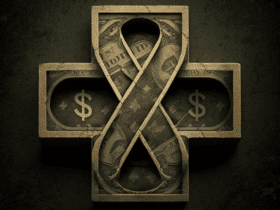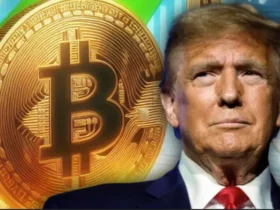On January 20, Donald Trump was inaugurated as the 47th president of the United States. The cryptocurrency community had been anticipating the arrival of a president who actively supports the industry. In the lead-up to his inauguration, Trump and his team announced plans to create a crypto hub in America, develop clear and unified regulations, and reduce the pressure from the U.S. Securities and Exchange Commission (SEC) on all crypto projects.
Changes in Cryptocurrency Accounting Rules The Trump administration plans to issue executive orders aimed at revising existing cryptocurrency regulation rules. One expected change is the removal of requirements that oblige banks to classify digital assets as liabilities on their balance sheets, which had previously hindered institutional adoption of cryptocurrencies.
What does this mean? If a bank classifies digital assets as liabilities, it must return them to the client as if they were deposits or loans. The initiative to remove this requirement will not only affect banks but also other market players, including exchanges, custodial services, and funds. This refers to the cancellation of a document known as Staff Accounting Bulletin No. 121 (SAB 121).
SAB 121 is a document issued by the SEC in March 2022, establishing accounting guidelines for companies managing digital assets on behalf of their clients.
Key provisions of SAB 121:
Recognition of Liabilities: Companies holding crypto assets for their clients (such as banks, crypto exchanges, or custodial services) must account for these assets as liabilities on their balance sheets. This increases risks and imposes strict capital requirements.
Loss Reserve: SAB 121 requires companies to create a reserve for potential losses related to crypto assets, such as from cyberattacks or technical issues. This is due to the high level of risk associated with digital assets.
Disclosure: Organizations must provide detailed disclosures on how they manage cryptocurrencies, including internal procedures related to risks and security.
Issues Caused by SAB 121:
Barrier to Institutional Participation: The requirement to account for cryptocurrencies as liabilities makes them harder to use for traditional financial institutions. This results in banks and companies avoiding cryptocurrency adoption.
Increased Costs: Creating loss reserves increases operational expenses, making cryptocurrency services less profitable.
Limiting Innovation: Stricter reporting and balance sheet requirements slow down the development of the crypto industry.
If SAB 121 is canceled, banks and custodial services will be able to treat cryptocurrencies as assets rather than liabilities, which will improve their financial reporting; regulatory burdens will decrease, which could attract new companies to the crypto sector; institutionalization of cryptocurrencies will accelerate as barriers to adoption are removed. If this change occurs, it could be a significant step toward mass adoption of cryptocurrencies.
Additionally, the Trump administration plans to end the practice of “debanking,” which limits financial services for cryptocurrency companies. Essentially, President Trump aims to reconcile the digital and traditional financial worlds.
Advisory Council on Cryptocurrencies According to Reuters, Donald Trump plans to create an advisory council on cryptocurrencies that will guide government policy in this area. The council is expected to include at least 12 representatives from the crypto industry, including CEOs of leading companies. The council is set to begin its work after Trump’s inauguration in late January.
The administration also plans to create an advisory board focused on developing favorable policies and lifting restrictive measures such as Operation Choke Point 2.0, which would ease cryptocurrency companies’ access to banking services.
President Trump plans to appoint candidates for key positions who demonstrate a more favorable stance on cryptocurrencies. His advisors have actively consulted with representatives from the crypto business about possible changes in government policy, indicating the administration’s desire to create conditions for the development of the crypto market. Who will these candidates be? Likely those who fund him.
Major cryptocurrency companies, including Ripple, Coinbase, Kraken, Robinhood, and Circle, contributed over $10 million to Donald Trump’s inauguration fund, expressing support for his pro-cryptocurrency stance and hoping for favorable changes in regulation. These companies aim to leverage their influence to promote favorable regulatory changes and political frameworks under the new administration. However, these large financial contributions have been criticized by Democrats and watchdog organizations, concerned about potential “buying influence.”
Reducing the Role of SEC and Transferring Authority to CFTC The Trump administration is considering transferring cryptocurrency regulation responsibilities from the SEC to the Commodity Futures Trading Commission (CFTC). This is part of an effort to create more favorable conditions for innovation in the crypto industry and eliminate the harsh measures previously applied by the SEC.
The CFTC would oversee the regulation of cryptocurrencies such as Bitcoin and Ethereum, as well as crypto exchanges, providing clearer rules for the industry and removing aggressive enforcement actions from the SEC.
Congress is likely to consider new legislative initiatives, including framework laws for cryptocurrency regulation and a stablecoin bill, which now have a higher chance of passing.
It is expected that the new SEC chairman will change the approach to regulation, offering more clarity and support for the crypto industry.
Current Structure of Cryptocurrency Regulation in the U.S. As of the time of writing, cryptocurrency regulation in the U.S. is handled by several federal agencies:
SEC: Regulates initial coin offerings (ICOs) and classifies some crypto assets as securities, requiring their registration and compliance with investor protection rules.
CFTC: Treats Bitcoin and Ethereum as commodities and regulates the derivatives market, including futures contracts on cryptocurrencies.
FinCEN (Financial Crimes Enforcement Network): Requires cryptocurrency platforms to comply with anti-money laundering (AML) laws and “Know Your Customer” (KYC) rules.
IRS (Internal Revenue Service): Treats cryptocurrencies as property for tax purposes, meaning capital gains taxes must be paid on transactions involving digital assets.
The lack of unified regulation means that each state sets its own rules. For example, money transmitter licenses are issued at the state level, and the requirements can vary significantly. In some states, such as Montana, there is no specific regulation, while in others, it is quite strict.
It was expected that Trump’s rise to power would lead to unified regulation at both the federal and state levels, creating clear rules for the industry.
Some experts believe that under Trump’s administration, altcoins may receive more advantages compared to Bitcoin due to a more favorable regulatory environment. Additionally, potential approval of ETFs for altcoins during Trump’s presidency could further stimulate the market.
Trump, who received support from key players in the digital asset space, intends to appoint pro-cryptocurrency individuals to significant positions, such as Paul Atkins. This raises hopes for policies that support digital assets.
However, experts caution against the varying reliability and volatility of altcoins. Catherine Kirkpatrick Boss of StarkWare warns that some altcoins may be fraudulent.
According to media reports, Donald Trump also recently proposed reviewing the composition of the U.S. national crypto reserve, replacing Bitcoins with tokens issued by American companies. This is expected to support local projects and reduce dependence on BTC volatility.
What Has Changed in Cryptocurrency Regulation in the Early Days After Inauguration? As of the time of writing, the Trump administration has not taken any active actions regarding cryptocurrency regulation. Despite expectations, the topic of cryptocurrencies was not even mentioned in his inauguration speech. This created additional uncertainty for investors who were hoping for a clear signal of support.
The market, which had previously shown positive momentum due to promises of a favorable regulatory environment, reacted with a drop in the prices of many digital assets, particularly Bitcoin and the newly launched TRUMP token.
Market expectations about the appointment of digital asset supporters to key positions have not yet been confirmed. The uncertainty about regulation and the lack of a clear stance from the government have negatively affected investor sentiment.
This situation may not only be a result of insufficient attention to digital assets but also a potential strategy from the administration. It is possible that Trump is waiting to assess market reactions before announcing decisions that will impact the regulatory environment.
On the other hand, this may also signal that cryptocurrencies are not a priority for the new government, as had been expected earlier, which could slow the development of the industry in the U.S.
Regardless, it is clear that the market needs more certainty and transparency from the administration, which had claimed to be ready to support innovation.
In Conclusion Upcoming changes in cryptocurrency regulation in the U.S. are set to mark a significant step in the development of this industry. Initiatives announced by the Trump administration are aimed at simplifying crypto asset accounting rules, reducing regulatory pressure, and creating transparent conditions for market participants. The transfer of some powers from the SEC to the CFTC and the creation of an advisory council could provide greater flexibility in the legal field for the cryptocurrency industry.
At the same time, the question of balancing deregulation with the need for transparency and investor protection remains open. It will be important to observe the implementation of these initiatives, as their success will depend on how effectively they are adapted to market realities.
Thus, the future of the cryptocurrency industry in the U.S. looks promising, but it still requires a measured approach to implementing changes. Investors and market participants must be prepared to adapt to new conditions, while regulators must seek compromises between fostering innovation and maintaining financial stability.























Leave a Reply